

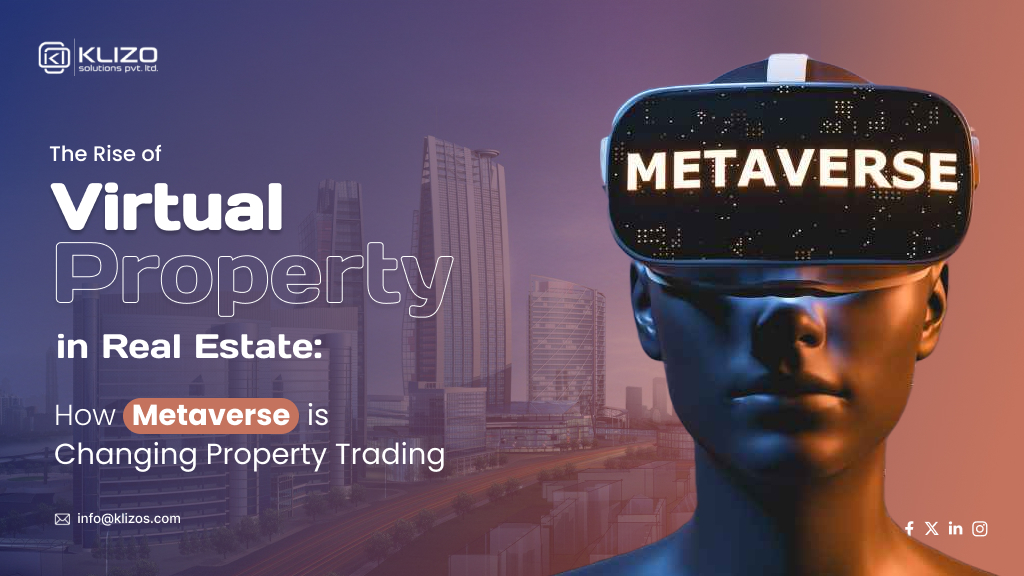
Have you ever considered diversifying your investments beyond traditional real estate? Have you ever wondered what it would be like to own a piece of land in a virtual world?
A world where you can create, explore, and interact with others in a fully immersive way, where you can make money from your digital creations or invest in the future of the internet.
Well, this world is not a fantasy. It’s the metaverse’s virtual property in real estate, and it’s here!
Throughout history, real estate has been a premier investment avenue, predating gold, equities, mutual funds, bonds, and various securities.
Remember Mark Twain’s quote emphasizing this timeless sentiment, “Buy land, they aren’t making them anymore.”
As the population grows and inflation peaks, many aspire to own land or engage in real estate investments. And owning digital lands could be more lucrative than their physical counterparts, even if intangible?
In this article, we’ve provided a comprehensive guide to the metaverse property market, covering the basics, the platforms, the benefits, and more! Whether you are a beginner or an expert, this article will help you navigate the metaverse and make the most of your virtual property in real estate.
Before getting into what metaverse real estate investment means, first understand what virtual property is.
Well, virtual property in real estate refers to the land or spaces that users can own/buy, trade/sell, or rent/lease in the metaverse, a shared digital space that connects different virtual worlds and platforms.
While the concept of virtual lands may surprise some, those acquainted with games like Farmville and Clash of Clans may not find it revolutionary.
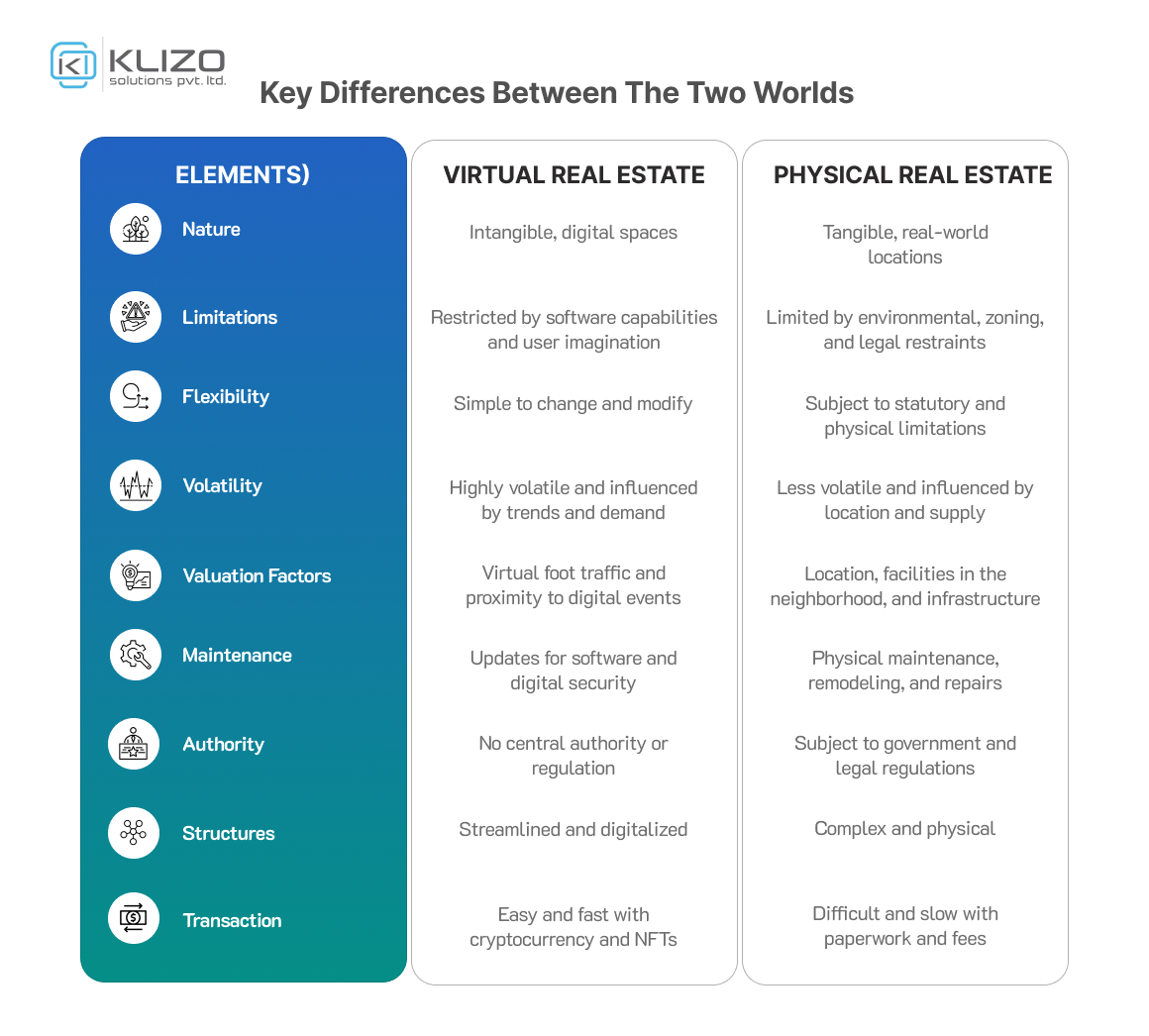
Now, the metaverse is a cryptocurrency-driven digital realm where users can interact, create, and explore through various virtual worlds and platforms.
Some of the most popular platforms for virtual property in real estate are Decentraland, The Sandbox, CryptoVoxels, and Somnium Space. These platforms use blockchain technology and NFTs to ensure the ownership and uniqueness of the virtual properties.
In simpler words, the metaverse is a shared digital space that connects different virtual worlds and platforms. It allows users to interact with each other through avatars, explore various environments, and create their own experiences. It’s like the internet but in 3D and is powered by blockchain technology and NFTs, which ensure the ownership and uniqueness of the virtual properties, also known as metaverse real estate.
But why would anyone want to buy virtual property in real estate? Here comes why!
Remember, virtual property in real estate is not just a game. It’s a new frontier of innovation and opportunity. It’s a way to express yourself, connect with others, and make money. It’s the next big thing in the digital economy!
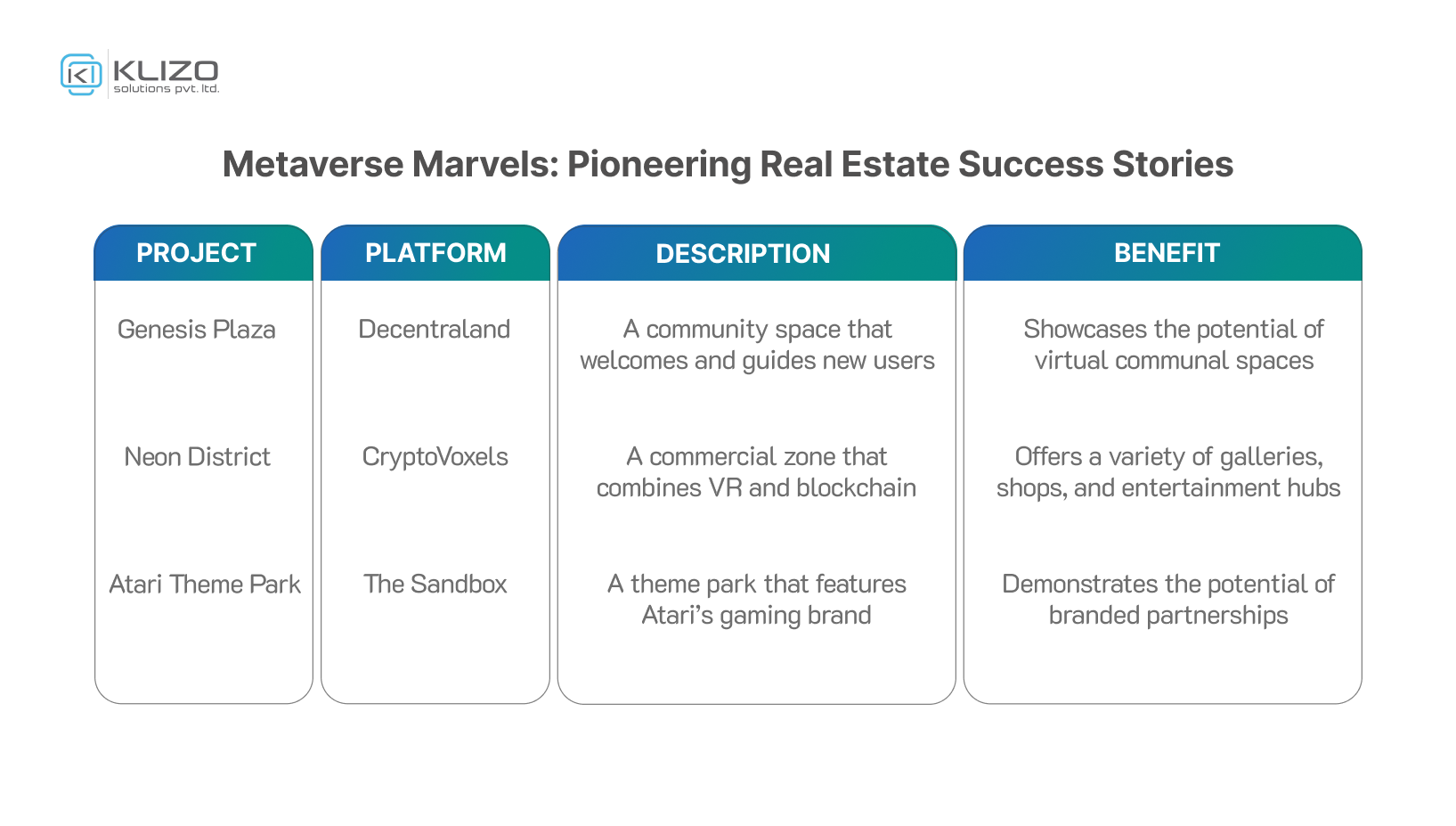
Are you interested in metaverse real estate investment and curious about how you can buy metaverse land? Then, here comes a step-by-step guide for how to take part in metaverse property development.
Start Building: Start building and enjoying your land in the metaverse, or sell it in the real estate NFT marketplaces later for a profit, if you wish. You can create anything you want on your land, from games and art to businesses and social spaces. You can also monetize your creations using NFTs and platform tokens.
As of the latest available data, smaller virtual property in real estate plots in less sought-after corners could kick off at a modest few hundred dollars. On the flip side, prime spots in well-established metaverse platforms boast values that soar into the hundreds of thousands or even millions.
Many brands, celebrities, and investors want to secure space in the metaverse, in the same way they buy advertising space on popular websites or social media platforms. Some examples of high-profile purchases of metaverse real estate are:
The dynamic nature of the virtual property prices emphasizes the need for ongoing market research, as the landscape evolves swiftly.
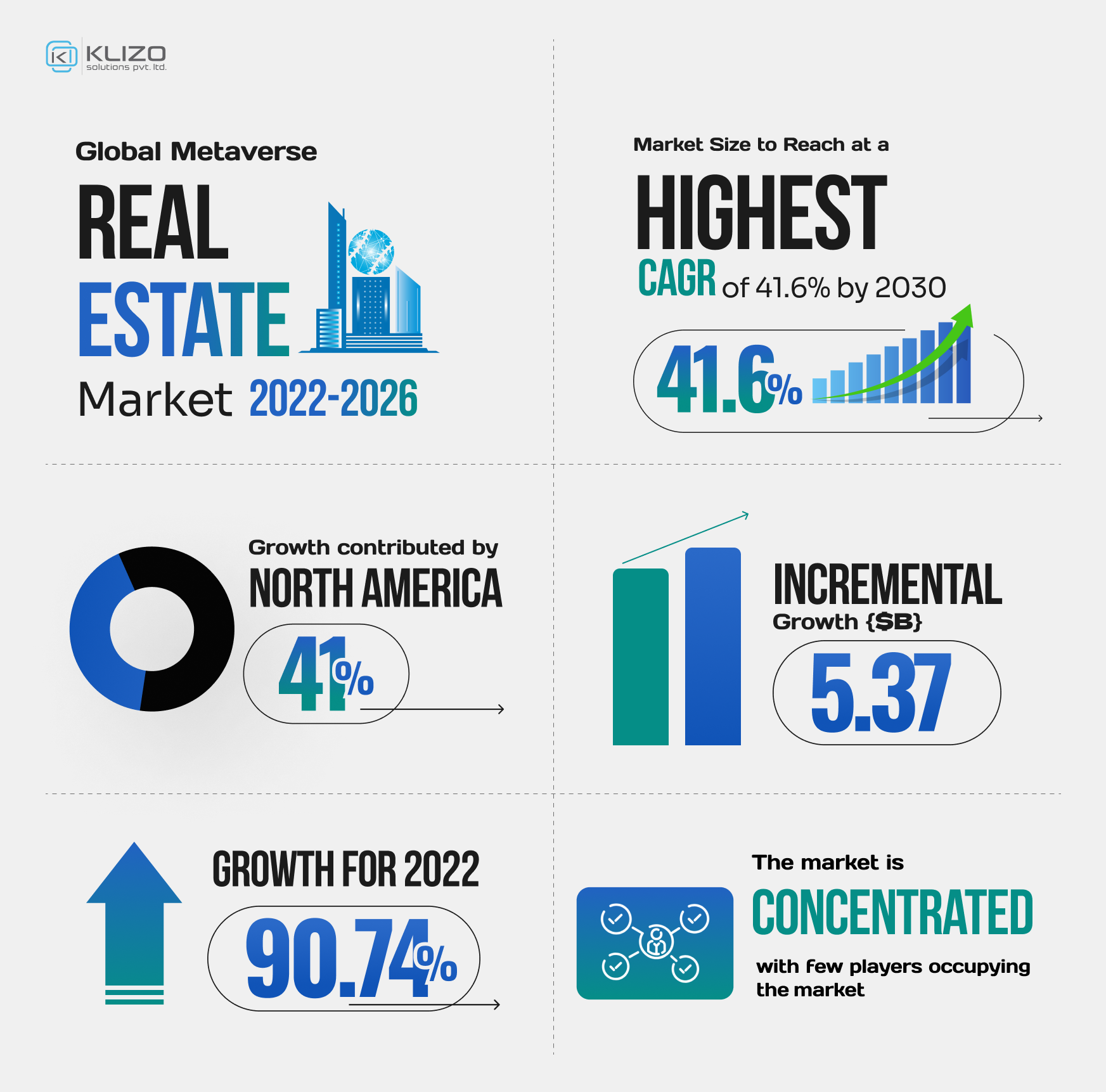
In 2022, the real estate metaverse market stood at an impressive $1.14 billion, with forecasts projecting a monumental fifteen fold increase to reach a staggering $15.69 billion by 2030. This remarkable growth accentuates the shifting dynamics and immense potential within the metaverse virtual property in real estate sector.
The query of whether metaverse virtual property in real estate proves a wise investment hinges on your risk tolerance. As virtual reality gains wider adoption, there’s a promising chance that holding onto a metaverse property for five to ten years may yield significant value appreciation.
Yet, uncertainties abound regarding the metaverse’s organization, property operations, and governance as it advances in sophistication and usage. The virtual real estate market also grapples with challenges like market volatility, regulatory uncertainties, and security issues.
But this is also a fact that the meteoric rise of the metaverse has opened doors to new horizons in virtual real estate investing. Platforms like Decentraland, Crypto Voxels, The Sandbox, and Somnium Space present many opportunities for capital appreciation, artistic expression, and social engagement.
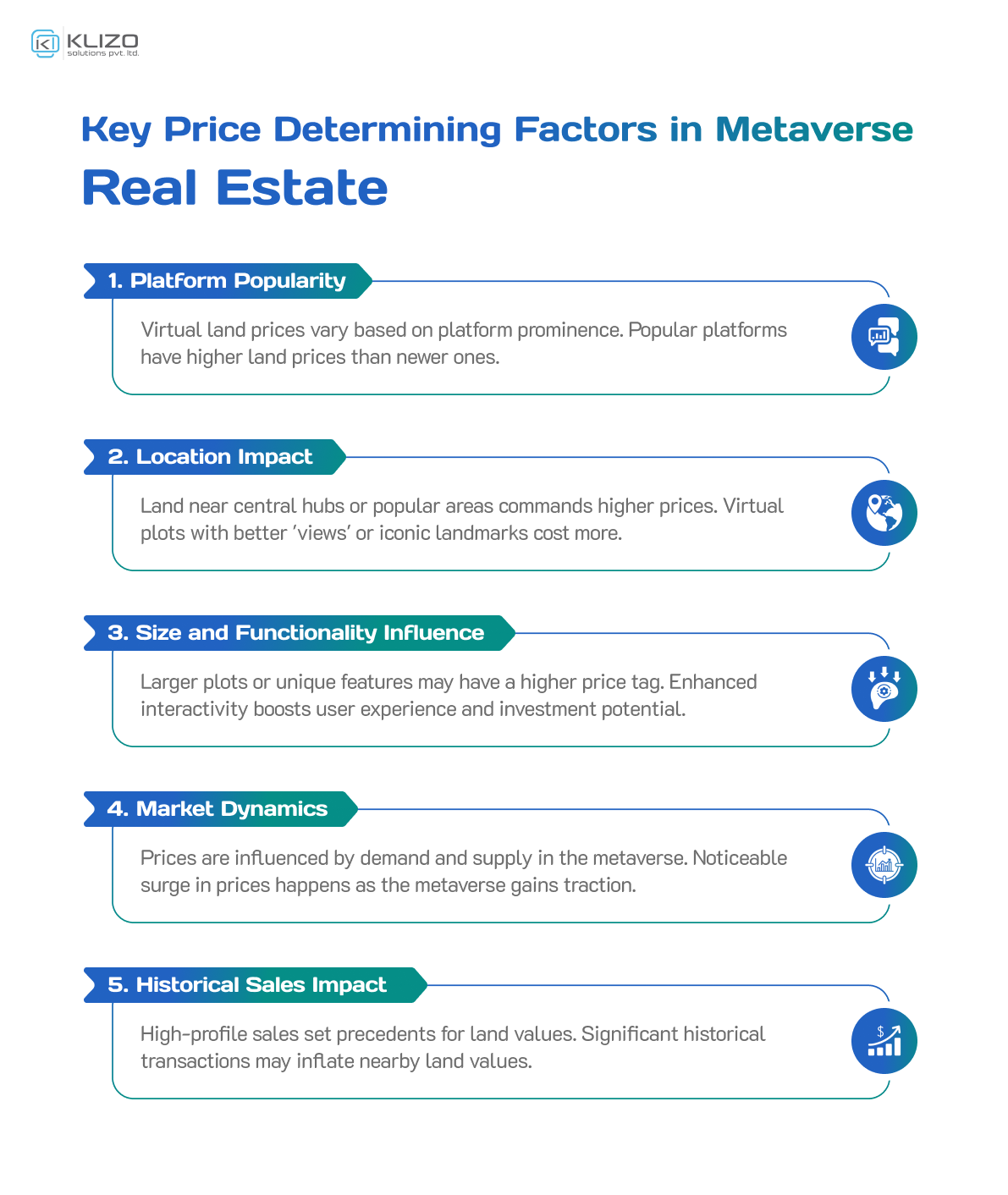
In the long run, the fate of virtual property in real estate hinges on the evolution of the metaverse. Major players like Facebook (now Meta), Microsoft, and Nvidia are banking on the metaverse becoming the “next generation” of the internet.
If this vision materializes and the metaverse becomes as crucial to business and society in the next two decades as the World Wide Web has been in the past two, digital real estate will likely emerge as a dynamic and valuable asset.
Remember, the metaverse, potentially even more immersive and captivating than its predecessors, could signify the next significant leap. This anticipation points towards a promising future for the digital land and real estate market.
The metaverse is not just a mere digital playground! It emerges as a new economic frontier with the power to disrupt traditional ownership and investment models.
In the realm of virtual property in real estate, there lies groundbreaking opportunities for enterprises, tech enthusiasts, and artists.
Embracing the metaverse, however, demands a robust backing of technical specialists versed in harnessing cutting-edge technologies without succumbing to cyber threats.
And that’s why you might find us, Klizo Solutions, a metaverse-specialized software development company, to be your steadfast partner on this transformative journey.
Connect with us to explore the vast potential of virtual property in real estate and build your metaverse empire together!
Joey Ricard
Klizo Solutions was founded by Joseph Ricard, a serial entrepreneur from America who has spent over ten years working in India, developing innovative tech solutions, building good teams, and admirable processes. And today, he has a team of over 50 super-talented people with him and various high-level technologies developed in multiple frameworks to his credit.

Subscribe to our newsletter to get the latest tech updates.